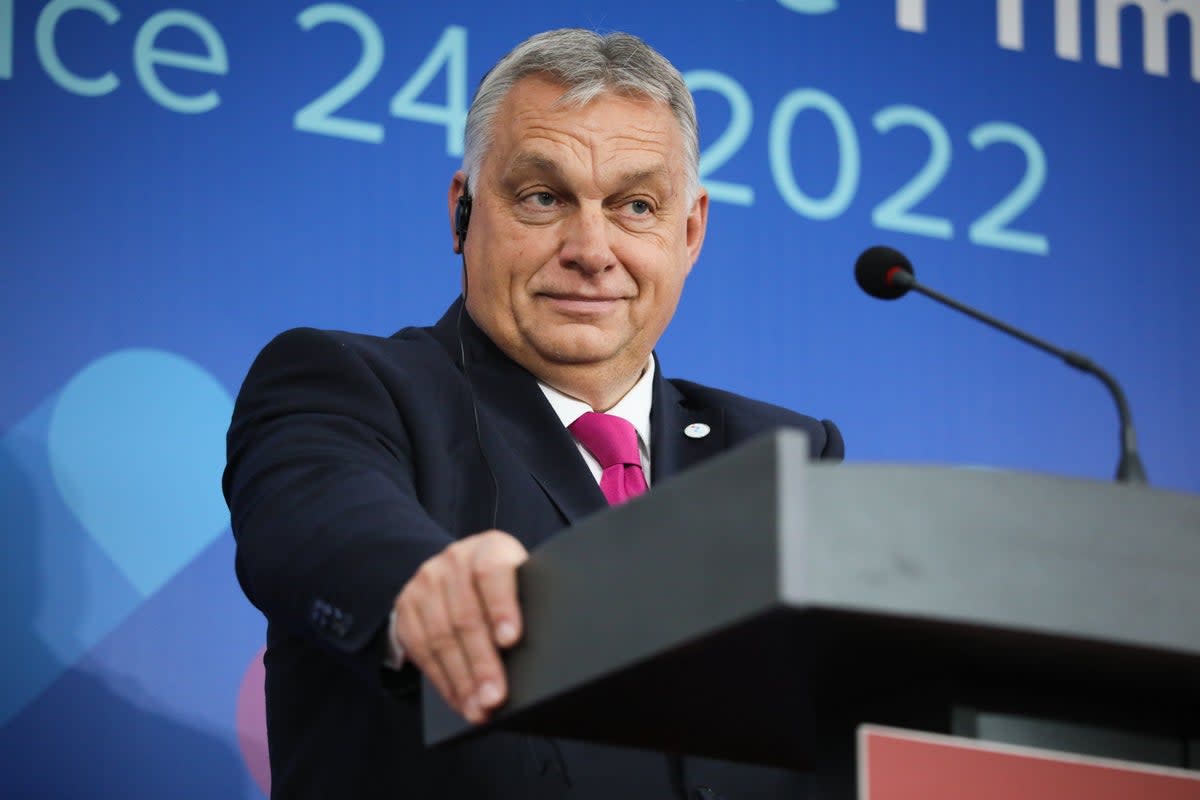Friend or foe: Hungary delays ratifying Sweden and Finland’s bid for Nato membership

Hungary has delayed ratifying Finland and Sweden’s bid for Nato membership – but prime minister Viktor Orban said it would be approved early next year.
Speaking after a meeting with the Visegrad Group in Slovakia, Orban said that his government had already decided that Hungary would support Finland’s and Sweden’s Nato accession and parliament would set this item on its agenda at its first session next year.
“Hungary will surely give its backing to their accession, after the government had done, also parliament will do so,” Mr Orban said. Parliament normally reconvenes around mid-February.
Hungary and Turkey are the only members of the alliance who have not yet cleared the accession.
The Hungarian government submitted the relevant legislation in July but parliament, in which Mr Orban’s ruling Fidesz party has a two-thirds majority, has not yet tabled the two bills for debate and approval.
Mr Orban is seen as an ally of Putin, despite being a member of Nato and the European Union.
The leaders of Poland and the Czech Republic publicly criticised Mr Orban on Thursday, laying bare tensions within central Europe’s Visegrad Group that have been exacerbated by the war in Ukraine.
Unity within the Visegrad Group, set up in 1991 as the region emerged from decades of communist rule, has been sorely tested by the war, with Orban opposing harsher European sanctions on Russia including on energy supplies.
By contrast, Hungary‘s three Visegrad neighbours – which also include Slovakia – are among the EU’s toughest critics of Russian president Vladimir Putin’s actions in Ukraine.
“This is not the best of times for the [Visegrad] format, and Hungary‘s different attitudes are significantly influencing and complicating the situation,” Czech prime minister Petr Fiala said as he headed for a meeting of Visegrad leaders in Slovakia.
“I make no secret of the fact that the views of the Hungarian prime minister, some of which can even be described as provocative, do not help this cooperation to proceed as well as in the past,” Fiala added.
This week Mr Orban further annoyed his neighbours by wearing a “Greater Hungary“ scarf to a soccer match – which showed territory now in Austria, Slovakia, Romania, Croatia and Serbia as part of Hungary, which drew sharp criticism from neighbours.

 Yahoo News
Yahoo News 
